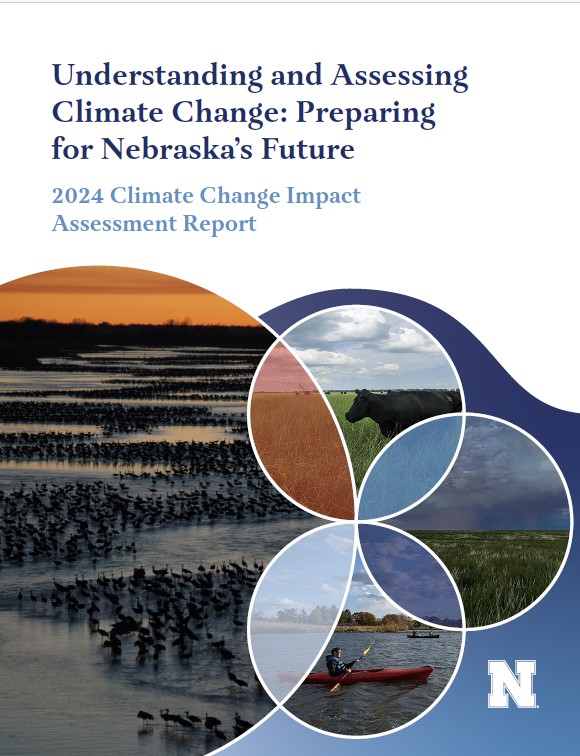Content
Nebraska stands at the crossroads of experiencing and addressing the challenges climate change brings. Tackling the far reaching impacts of climate change on agriculture, water resources, energy systems, ecosystems, and vulnerable populations requires collaboration, knowledge sharing, and coordinated strategies. Leveraging the deep environmental knowledge held by Indigenous communities, mobilizing the power of faith-based organizations, and drawing upon the experience of localized adaptation initiatives are key to fostering resilience and advancing fair and just solutions. This report provides a comprehensive analysis of critical insights across key sectors, emphasizing the urgency of implementing proactive strategies to mitigate risks, adapt to ongoing changes, and build a sustainable future for all Nebraskans.
Chapters
- Executive Summary
- Table of Contents, Authors, Reviews, Acknowledgement
- Chapter 1 | Introduction
- Chapter 2 | Climate Change Contexts: Global, National, and State
- Chapter 3 | Observed Changes in Nebraska's Climate
- Chapter 4 | Projections of Nebraska's Future Climate
- Chapter 5 | Water Systems
- Chapter 6 | Energy
- Chapter 7 | Ecosystems
- Chapter 8 | Agriculture
- Chapter 9 | Human Health
- Chapter 10 | Communities and the Built Environment
- Chapter 11 | Indigenous Peoples
- Chapter 12 | Climate Justice and Equity
- Chapter 13 | The Response of Faith Communities
- Chapter 14 | Nebraskans' Perceptions of Climate Change
- Chapter 15 | Next Steps and Future Work
- Supplemental Report: Adaptation, Risks and Impacts (Report | Interactive Tool)
- Appendix A | About the Authors
- Appendix B | Faith-Based Communities Survey
- Appendix C | Evaluated Plans and Assessments
- References
